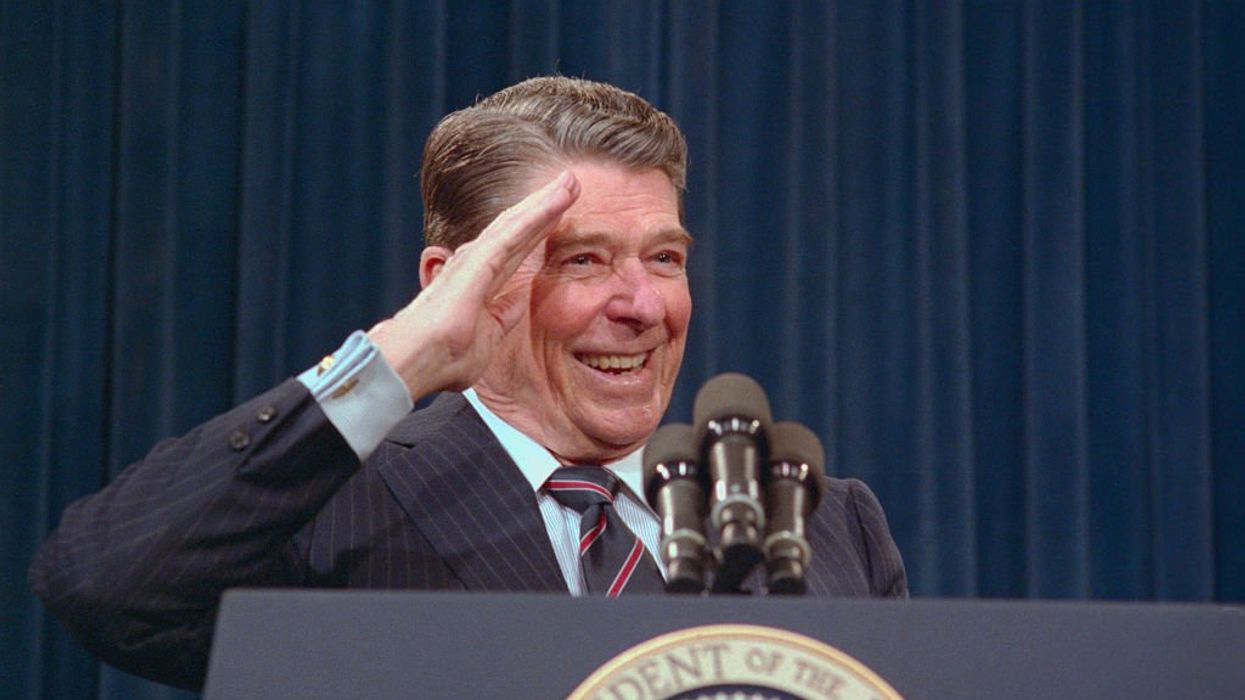
© 2024 Blaze Media LLC. All rights reserved.
[Editor’s note: the following is a cross post by Luke Russert and Frank Thorp that originally appeared on CNBC.com]:
While the politics of the healthcare law and immigration play out this week, Rep. Paul Ryan (R-Wisc.) and Sen. Patty Murray (D-Wash.) are quietly working out the details of a possible two-year long budget agreement.
This would be significant because it would avert the threat of another government shutdown and allow both sides an opportunity to "regain some trust," according to a Democratic aide.
What could a deal look like?
Details are being kept purposely vague, but sources familiar with the ongoing negotiations have sketched out the following details:
- The two-year deal would likely cover fiscal year 2014 and 2015.
- It would set the top line budget number for both years. That's important because it's what the appropriations committees will work with when they decide how to allocate funding for specific government programs under the funding guidelines set by that top line.
- That top line budget number would be in the neighborhood of appropriating $967 billion to $1.058 trillion each year. Possibly in the $990 billion dollar range, though the specific dollar amount is not yet known.
The deal seeks to limit the impact of sequestration by finding other areas of government to raise revenues and also by cuts or reforms to programs.
Ryan and Murray are exploring things like new airline fees or the sale of broadcast spectrum owned by the government to help offset the $967 billion cap on government spending put in place because of sequestration.
The supposed deal would also give various government agencies more leniency in how to implement aspects of the sequester.
When will this happen?
House Speaker John Boehner is determined to leave town on Dec. 13. Murray and Ryan will determine if the deal is done, and then Boehner and Senate Majority Leader Harry Reid would determine when to vote on it, preferable before they leave town.
Both sides tell NBC News that they are "optimistic" at this point that they can get it done before that date. The Senate is gone this week and Murray left her district to come back and work, a sign of progress.
It could be announced as early as the end of this week or as late as the middle of next week. Once announced, it would most likely go on an expedited path through both chambers and onto the White House for President Barack Obama's signature.
Also, since the current short-term government funding measure expires on Jan. 15, they have some time to work out the kinks.
As has been the case in recent Washington spending fights, nothing is for sure until a final agreement is reached.
 House Budget Committee Chairman Rep. Paul Ryan, R-Wis., left, speaks with Senate Budget Committee Chair Sen. Patty Murray, D-Wash., on Capitol Hill in Washington, Wednesday Nov. 13, 2013, at the start of a Congressional Budget Conference. (AP)
House Budget Committee Chairman Rep. Paul Ryan, R-Wis., left, speaks with Senate Budget Committee Chair Sen. Patty Murray, D-Wash., on Capitol Hill in Washington, Wednesday Nov. 13, 2013, at the start of a Congressional Budget Conference. (AP)
Will the House GOP support it since it increases spending?
Some hardliner fiscal conservatives will most likely vote against any bipartisan bill because they won't like moving from the $967 billion number.
But if Ryan's finger prints are on it, it would help its chances of getting broader Republican support -- although the bill would still not be guaranteed to pass, considering how volatile the Republican conference is.
--
RELATED:
- Income threatens our 'way of life': Obama
- Gas tax increase could be packaged as 'user fee'
- Biden to Chinese students: Challenge 'status' quo'
- How GOP should react to Obamacare: Hutchinson
©2013 CNBC LLC. All Rights Reserved. Luke Russert and Frank Thorp.
Want to leave a tip?
We answer to you. Help keep our content free of advertisers and big tech censorship by leaving a tip today.
Want to join the conversation?
Already a subscriber?
more stories
Sign up for the Blaze newsletter
By signing up, you agree to our Privacy Policy and Terms of Use, and agree to receive content that may sometimes include advertisements. You may opt out at any time.
© 2024 Blaze Media LLC. All rights reserved.
Get the stories that matter most delivered directly to your inbox.
By signing up, you agree to our Privacy Policy and Terms of Use, and agree to receive content that may sometimes include advertisements. You may opt out at any time.


